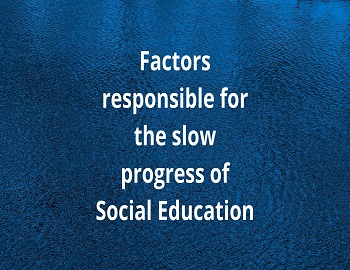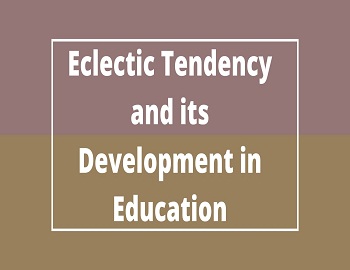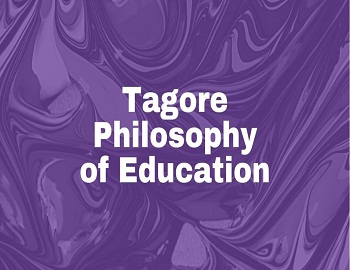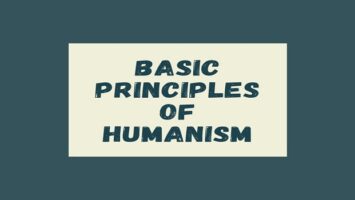Slow progress of Social Education:
Progress in social education has been quite slow. Ranganathan has rightly remarked:
“Social education in India is a challenge to statesmanship. Any yet, it is sought to be solved by slogans”.
Thus, if the Government has spent or still spending heaps and heaps of rupees on social education, and does not pay proper attention towards awakening of the people, it is useless and unproductive from all points of view. We find that the rapid progress of social education has yet not been achieved to a satisfactory measure. The factors responsible for the slow progress are given below-
- The lack of sincerity and selflessness in the performance of Social Workers is reflected everywhere. “It is taken as a profession rather than mission”. Such people in the words of a writer have believed in window dressing and lip service rather than any solid interest and keen leadership”.
- Professional skill has always been lacking in social workers. Their approach towards illiterate adults is not at all proper. They do not pay attention towards the psychology of the adults.
- The subject matter of education given to adults has no concern with the need and necessities of the people. Therefore, it has no value in life dealings. The knowledge apart from the environment has no significance.
- The methodology for educating adults has not been very different from the methodology of educating young children. Investigating and research have not been undertaken to find real situations about Social Education.
We may aptly conclude social education with the following observation of Abul Kalam Azad which he made in his Address to the UNESCO Seminar on Rural Adult Education held in December 1949 in Mysore:
“By social education, we mean education for the complete man. It will give him literacy so that knowledge of the world may become accessible to him. It will teach him how to harmonize himself with his environment and make the best use of the physical condition in which he subsists. It is intended to teach him improved crafts and modes of production so that he can achieve economic betterment. It also aims at teaching him the rudiments of hygiene for the individual and the community so that our domestic life may be healthy and prosperous. Last, but not least, this education should give him training in citizenship so that he obtains some insight into the affairs of the world and can help his Government to take decisions which will make for peace and progress”.









Comments (No)